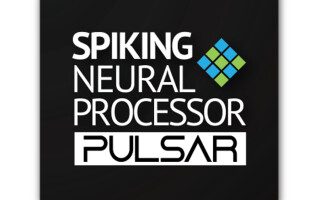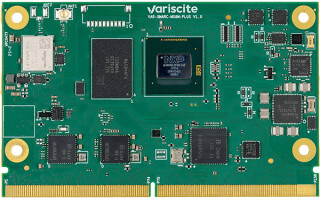Western Digital Releases Industry's First 96-Layer 3D NAND UFS 2.1 Embedded Flash Drive for High-End Smartphones
October 09, 2018
Blog

Advanced UFS-Enabled EFD Enables Always-On Experience for Data-Intensive, Next-Generation Smartphone, Tablet and Compute Devices
 |
| Western Digital iNAND MC EU321 EFD with 96-layer 3D NAND and SmartSLC 5.1 architecture |
Western Digital Corp. (NASDAQ: WDC) today introduced the industry’s first 96-layer 3D NAND UFS 2.1 embedded flash drive (EFD), the Western Digital iNAND MC EU321, accelerating the possibilities of artificial intelligence (AI), augmented reality (AR), multi-camera high-resolution photography, 4K video capture and other demanding applications for high-end mobile and compute devices.
Leveraging Western Digital’s 96-layer 3D NAND technology, advanced UFS 2.1 interface technologies and Western Digital’s iNAND SmartSLC 5.1 architecture, the new Western Digital iNAND MC EU321 EFD delivers exceptional data performance for smartphone, tablet and PC notebook devices, enabling outstanding mobile experiences even as the device approaches full capacity.
“Mobile devices have become the hub of our everyday connected lives. As emerging capabilities for 5G speeds, 4K video, AR and VR continue to transform what smartphones, tablets and notebooks are capable of, user expectations and technology requirements to support these rich user experiences are also on the rise,” said Oded Sagee, senior director, product marketing Western Digital. “Our 3D NAND technology enables users to tap into higher embedded storage capacity to support their data needs throughout the smartphone life cycle. In addition, where the performance of a device with traditional storage architecture typically slows down as it nears capacity, the Western Digital iNAND MC EU321 EFD is purpose-built to maintain high performance, enabling users to continue to create, preserve and enjoy their digital experiences.”
The volume, velocity and variety of mobile data are predicted to skyrocket over the next few years as more data-centric capabilities come to mobile and compute devices.
• Mobile photography and video with multiple high-resolution cameras and AI-assisted photography offer users new capabilities for creating and sharing their digital content.
• 5G networks will enable ultra-fast download and transfer speeds, transforming the way consumers interact with their devices and content.
• 5G-powered AI at the mobile device “edge” offers the ability to capture, process and learn from data in real time.
According to Counterpoint Research, average NAND Flash storage capacities are poised to grow at a healthy CAGR of 28% between 2017-2021. The boost in average capacities comes from the pent-up replacement demand from mature tablet users upgrading to powerful, connected models with bigger screens and higher capacities, as entertainment and productivity on the go becomes the key use cases.
All these data-intensive applications require greater capacities and speeds to deliver the seamless on-the-go experience that consumers have come to expect from their mobile devices. In the first half of calendar year 2018 total smartphone shipments had 40 percent more embedded storage capacity than shipments in the first half of calendar year 2017. The equivalent to 51GB per smartphone , creating increased demand for higher capacities and smarter storage technologies.
Optimized for Data-Intensive, High-End Mobile Devices
The iNAND MC EU321 is the latest addition to the iNAND family, which has been trusted by all major smartphone and tablet manufacturers around the world for more than a decade. The iNAND MC EU321 EFD achieves sequential write performance speeds up to 550MB/s enabling exceptional user experiences. Western Digital is currently sampling storage solutions to OEMs in capacities up to 256GB2.
1 Source: IDC Quarterly Mobile Phone Tracker, August 2018




